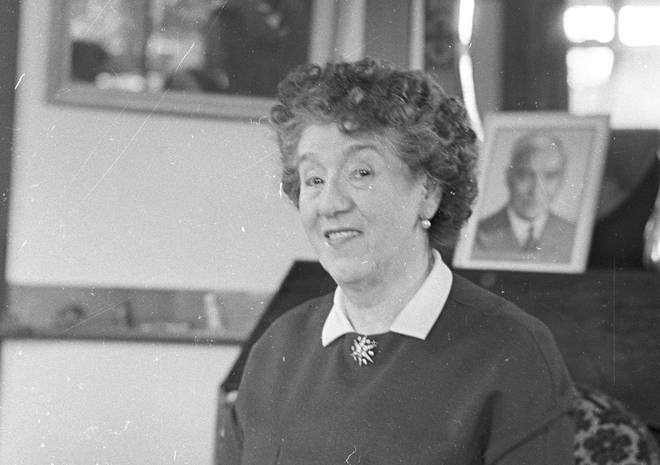Enid Blyton’s work labelled ‘racist and xenophobic’ in English Heritage blue plaque rewrite
Enid Blyton #EnidBlyton

17 June 2021, 08:59 | Updated: 17 June 2021, 09:02

A rewrite of Enid Blyton’s blue plaque by English Heritage has highlighted criticism for “racism, xenophobia and lack of literary merit” in her books.
The author, best known for children’s books the Famous Five and the Secret Seven, has a blue plaque commemorating her former home in Kingston-upon-Thames, where it is believed she was inspired to begin storytelling.
But the charity, in an audit of its plaque descriptions on its website, has added a section to highlight the controversies the author faced over her work.
It reads: “Blyton’s work has been criticised during her lifetime and after for its racism, xenophobia and lack of literary merit.
“A 1966 Guardian article noted the racism of The Little Black Doll (1966), in which the doll of the title, Sambo, is only accepted by his owner once his ‘ugly black face’ is washed ‘clean’ by rain.”
The author faced criticism throughout her career for controversial portrayals of non-white or non-British characters in some of her books.

In 1960, Macmillan Cancer Support rejected her manuscript for the book The Mystery That Never Was in 1960 because of alleged xenophobic content.
It said the the book displayed a “faint but unattractive touch of old-fashioned xenophobia” against those who do not speak English.
Most recently, the Royal Mint rejected a commemorative Enid Blyton 50p coin, with the money producer labelling her a “racist, sexist homophobe and not a very well-regarded writer”.
But English Heritage added in its description: “Others have argued that while these charges can’t be dismissed, her work still played a vital role in encouraging a generation of children to read.”
In the wake of Black Lives Matter protests following the murder of George Floyd by a police officer in the US, the charity has set out to include information on figures “whose actions are contested or seen today as negative”.
Curatorial director Anna Eavis said in June 2020: “We need to ensure that the stories of those people already commemorated are told in full, without embellishment or excuses.”